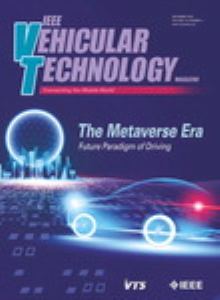基于反向防火墙的车联网抗颠覆身份聚合签名
IF 7.1
2区 计算机科学
Q1 ENGINEERING, ELECTRICAL & ELECTRONIC
引用次数: 0
摘要
车联网(IoV)通过实现信息的交互和集成,在智能交通系统中至关重要。但是,如果没有安全的认证,IoV很容易受到篡改和伪造攻击。基于身份的聚合签名(identity -based aggregate signature,简称)是保证身份认证和信息完整性的关键,是构建安全认证的基础。通过对签名进行压缩和批量验证,提高了签名传输和验证的效率,从而降低了机器对计算和存储的需求。不幸的是,斯诺登透露,强大的对手用颠覆性的算法取代了纯粹的加密算法,从而破坏了机器并破坏了它们的安全性。为了解决这个问题,我们提出了一种完全通用的基于身份的聚合签名,并带有反向防火墙(FU-IBAS-RF),车辆和私钥生成器(PKG)配备了rf,以对整个过程中传输的信息进行消毒。此外,我们建议使用基于身份的聚合签名和反向防火墙(IBAS-RF),为每辆车部署rf以对签名阶段生成的信息进行消毒。此外,我们还证明了FU-IBAS-RF和IBAS- rf不仅继承了的安全性和功能特性,而且具有抗颠覆性。最后,我们进行了实验,并表明在两种方案中,RFs在三个不同的安全级别上约占计算成本的18%。因此,FU-IBAS-RF和IBAS- rf都比现有的具有更高的安全性和效率。本文章由计算机程序翻译,如有差异,请以英文原文为准。
Subversion-Resistant Identity-Based Aggregate Signature With Reverse Firewalls for IoV
Internet of vehicle (IoV) is essential in intelligent transportation systems by enabling interaction and integration of information. However, IoV is vulnerable to tamper and forgery attacks without secure authentication. Identity-based aggregate signature (IBAS) is crucial in guaranteeing identity authentication and information integrity, thereby building secure authentications. With signature compression and batch verification, IBAS improves the efficiency of signatures transmission and verification, thereby reducing computing and storage demands on machines. Unfortunately, Snowden revealed that powerful adversaries replaced pure cryptographic algorithms with subverted ones to corrupt machines and undermine their security. To address this issue, we propose a fully and universal identity-based aggregate signature with reverse firewalls (FU-IBAS-RF), vehicles and the private key generator (PKG) are equipped with RFs to sanitize information transmitted throughout the entire process. Additionally, we propose an identity-based aggregate signature with reverse firewalls (IBAS-RF), RFs are deployed for each vehicle to sanitize information generated during the signing phase. Moreover, we prove that both FU-IBAS-RF and IBAS-RF not only inherit the security and functional property of IBAS but also are subversion-resistant. Finally, we conduct experiments and indicate that RFs accounts for approximately 18% of computation costs across three distinct security levels in both schemes. Therefore, both FU-IBAS-RF and IBAS-RF achieve stronger security with efficiency compared with existing IBAS.
求助全文
通过发布文献求助,成功后即可免费获取论文全文。
去求助
来源期刊
CiteScore
6.00
自引率
8.80%
发文量
1245
审稿时长
6.3 months
期刊介绍:
The scope of the Transactions is threefold (which was approved by the IEEE Periodicals Committee in 1967) and is published on the journal website as follows: Communications: The use of mobile radio on land, sea, and air, including cellular radio, two-way radio, and one-way radio, with applications to dispatch and control vehicles, mobile radiotelephone, radio paging, and status monitoring and reporting. Related areas include spectrum usage, component radio equipment such as cavities and antennas, compute control for radio systems, digital modulation and transmission techniques, mobile radio circuit design, radio propagation for vehicular communications, effects of ignition noise and radio frequency interference, and consideration of the vehicle as part of the radio operating environment. Transportation Systems: The use of electronic technology for the control of ground transportation systems including, but not limited to, traffic aid systems; traffic control systems; automatic vehicle identification, location, and monitoring systems; automated transport systems, with single and multiple vehicle control; and moving walkways or people-movers. Vehicular Electronics: The use of electronic or electrical components and systems for control, propulsion, or auxiliary functions, including but not limited to, electronic controls for engineer, drive train, convenience, safety, and other vehicle systems; sensors, actuators, and microprocessors for onboard use; electronic fuel control systems; vehicle electrical components and systems collision avoidance systems; electromagnetic compatibility in the vehicle environment; and electric vehicles and controls.

 求助内容:
求助内容: 应助结果提醒方式:
应助结果提醒方式:


